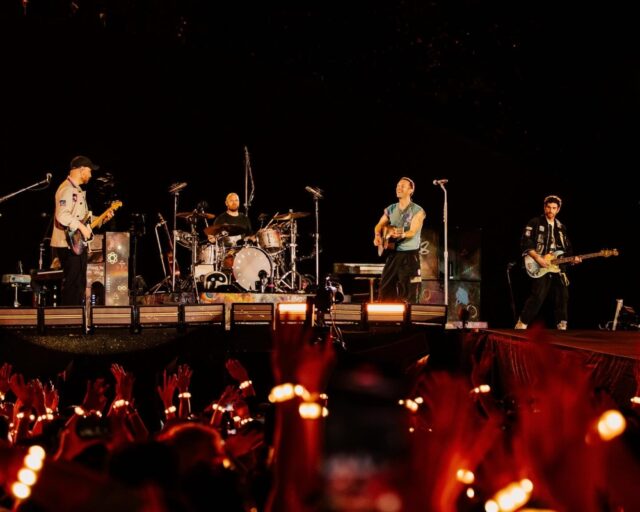HONG KONG, April 21 — When Coldplay lit up Hong Kong’s brand-new Kai Tak Stadium for four nights this month, the music didn’t just thrill fans — it also struck a chord with the local economy, pumping an estimated HK$1.2 billion (RM680 million) into the city.
Speaking to South China Morning Post (SCMP), Polytechnic University’s Professor Haiyan Song said the HK$1.2 billion figure is based on estimated audience size, average tourist spending, and ticket prices.
It’s a substantial slice of the city’s annual HK$260 billion tourist income, generated in just four nights.
Coldplay’s sold-out gigs on April 8, 9, 11, and 12 also marked a milestone: the band was the first to perform at the HK$30 billion Kai Tak Sports Park’s 50,000-seat stadium, which officially opened in March after six years of construction.
SCMP added that the concerts created a ripple effect beyond ticket sales.
Bars and restaurants in Kowloon City saw a 5 to 10 per cent boost, said district councillor Razwin Ullah.
“I saw many foreign tourists inside these establishments… I can easily tell who’s local and who’s not,” he added.
Among the 200,000 concertgoers was Jay Dela Cruz Ingles Jnr, a 27-year-old geodetic engineer from the Philippines.
For him and his family of six, the decision to see the British rock band in Hong Kong over other regional stops came down to simple visa-free travel — and what turned out to be an unforgettable city break.
“It was just jaw-dropping as we were walking towards the stadium, the architecture alone is magnificent,” said Ingles to SCMP.
“And man, the transportation — we didn’t have the slightest inconvenience. The MTR is so efficient, and I really envy that for my country.”
Ingles’ family stayed four nights, spending HK$4,000 on accommodation and exploring beyond the concert venue — Disneyland, Chi Lin Nunnery, Tai Kwun, Avenue of Stars, and a scenic hike up Braemar Hill. They even volunteered with local charities.
“Food was also one of the most notable expenses here. Luckily, we discovered ‘two-dish rice’,” he said, referring to the city’s budget-friendly takeaway staple.
Lawmaker Vincent Cheng Wing-shun said there was a noticeable uptick in visitors across the city, especially from Asia and mainland China.
The timing of the concerts alongside “Super March” — a cluster of mega-events including the Rugby Sevens, LIV Golf, and Art Basel — further amplified the impact.
“We do hope that authorities’ strategy of stringing a number of events together can help visitors stay longer,” he was quoted as saying.
“But we also acknowledge there is competition.”
Timothy Chui Ting-pong, executive director of the Hong Kong Tourism Association, said the gains were about more than just money.
“For mature cities like Tokyo, Singapore and Hong Kong, when we pursue tourism, it’s not just about the economy; it’s about the construction of the entire city brand,” he added.









